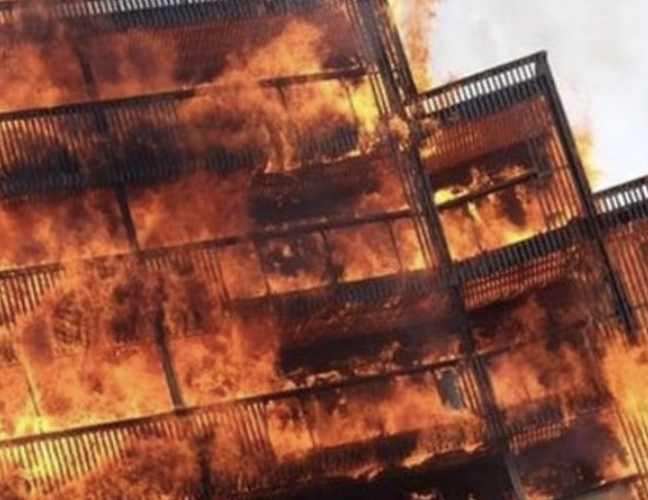Last week, the Grenfell Inquiry heard a former employee of the company that supplied insulation used in the tower’s refurbishment that a successful attempt to conceal that it was highly combustible was “intentional, deliberate and dishonest”.
He said he had felt “incredibly uncomfortable” with what the manufacturer, Celotex, had asked him to do, describing it manipulating the safety testing process to hide the fact that if the material caught light it would go up in flames, creating a risk to life and limb if it went beyond the reach of a firefighter’s ladder.
No reasonable person would find this acceptable. And if that shocking Grenfell evidence lifts the curtain on a culture of corporate greed, it also highlights our collective failure to tackle it. As a consequence, the damage was done at Grenfell well before the brave firefighters of the London Fire Brigade arrived. For them, the nightmare of that night will remain forever.
How does the government’s recently-published social housing white paper address this issue? The answer is that it does not. Instead, it seems to pay lip service only to Grenfell. Its proposals would not stop another management company or a rogue building manufacturer flouting the rules.
And the Draft Building Safety Bill, which was meant to follow on from Dame Judith Hackitt’s review of current regulations, seems to leave a gaping hole in our regulatory framework, because it excludes buildings below 18 metres in height. That is despite the thousands of low-rise buildings popping up not only in London but in towns and cities across the country. Those the Bill’s provisions fail to protect include student accommodation, hospitals and nursing homes.
Almost two years to the day after Grenfell, a fire ripped through Samuel Garside House, a four-storey block of flats in Barking in the borough whose council I lead, forcing 79 families to flee. Thanks to the firefighters’ swift arrival and some quick-thinking residents, no one was injured. But the building’s timber-clad balconies ensured the fire spread through it in less than six minutes.
Despite bearing no responsibility for this, Barking & Dagenham Council found itself picking up the pieces in the weeks and months which followed – sorting temporary accommodation, chasing insurers and providing safety inspections. We have incurred more than £100,000 in costs, not including the hundreds of hours of staff time expended. That is because the law assumes the taxpayer will foot the bill when things go wrong with buildings that are likely to, or do, combust. And to date we have not received a single penny from the owners of the building.
Being a mixture of privately-owned and part-leasehold properties, Samuel Garside was typical of many modern developments. The fire there raises questions similar to those being asked about Grenfell as they relate to the safety of low rise blocks in mixed ownership and where responsibility for them should rest.
I am awaiting the outcome of the inquiry into the aftermath of the fire, led by Sir Steve Bullock, which is expected to be published by the end of the year. But the government could have already taken steps to address many concerns. It could have started by tightening building safety regulations and by giving local authorities the resources they need to act in relation to all buildings, not just those in the social housing sector. It could have shifted responsibility on to those who profit from housing developments but are unwilling to play their part when things go wrong.
Leaving the private sector to regulate itself will not work. Only local government can fill those shoes. We owe it to those who lost their lives in Grenfell Tower, to those left behind to pick up the pieces, to the Samuel Garside families, to those who live in high and low-rise blocks up and down the country, and to firefighters who put their lives on the line, to put this right.
Darren Rodwell is Leader of Barking & Dagenham Council and is writing in that capacity. He is also London Councils Deputy Chair, Housing and Planning. Follow Darren on Twitter. The continuing proceedings of the Grenfell Inquiry can be followed here. Image from BBC.
OnLondon.co.uk exists to provide fair and thorough coverage of the UK capital’s politics, development and culture. It depends greatly on donations from readers. Give £5 a month or £50 a year and you will receive the On London Extra Thursday email, which rounds up London news, views and information from a wide range of sources. Click here to donate directly or contact davehillonlondon@gmail.com for bank account details. Thanks.

